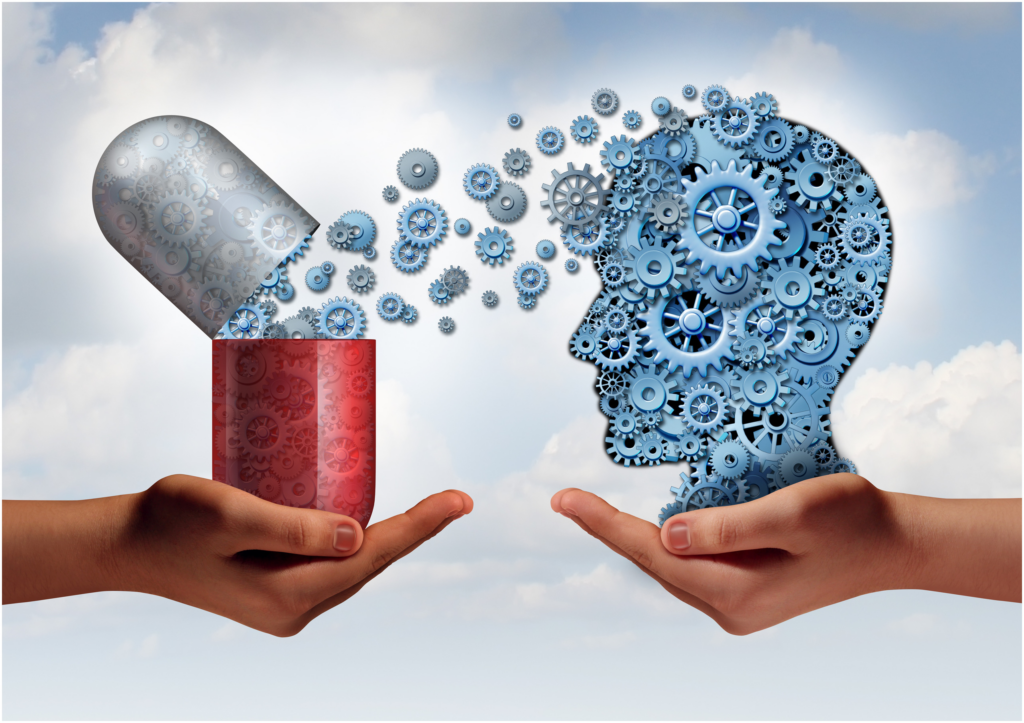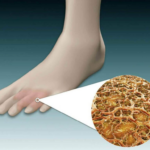Attention Deficit Hyperactivity Disorder (ADHD) is a complex condition that requires personalized strategies for effective management. Cognitive enhancers, often referred to as nootropics, can play a significant role in improving focus, memory, and overall mental clarity. Below, we explore some of the most notable options, their unique benefits, and key considerations to help you make informed decisions.

image taken from google /image
1. Modafinil
Widely regarded as a powerful nootropic, Modafinil is a wakefulness-promoting agent initially developed to treat sleep disorders like narcolepsy. However, its off-label use has gained popularity for managing ADHD symptoms. Modafinil works by enhancing dopamine signaling in the brain, which can improve focus, motivation, and cognitive performance.
- Benefits: Sustained energy, enhanced productivity, and no significant “crash” effect.
- Key Tip: Always consult a healthcare professional before use, as Modafinil is a prescription medication in many countries.
2. Piracetam
Piracetam is one of the pioneering compounds in the world of nootropics. Derived from GABA, it enhances communication between brain cells and increases blood flow to the brain, promoting better memory and learning capabilities.
- Benefits: Improves focus, reduces mental fatigue, and supports synaptic plasticity.
- Dosage Guidelines: For ADHD, doses typically range from 3200 to 6400 mg, divided throughout the day.
- Additional Insight: Combining Piracetam with a choline supplement can optimize its effectiveness by reducing the risk of headaches, a common side effect.
3. Noopept
A synthetic nootropic that is significantly more potent than Piracetam, Noopept is renowned for its ability to boost memory and learning capacity. It enhances the brain’s natural ability to form and retrieve memories while also offering neuroprotective benefits.
- Benefits: Faster information processing, prolonged focus, and minimal side effects.
- Dosage: Typically 10-40 mg per day, making it a low-dose, high-impact option.
- Neuroprotective Advantage: Encourages the formation of new neurons and protects brain cells from oxidative stress.
4. Ginkgo Biloba
One of the most ancient medicinal plants, Ginkgo Biloba is renowned for its ability to improve circulation and cognitive function. Its benefits extend to enhancing attention span and reducing anxiety—both common challenges for individuals with ADHD.
- Benefits: Increased focus, better memory, and mood stabilization.
- Pro Tip: Combining Ginkgo Biloba with Ginseng can amplify its cognitive benefits.
5. L-Tyrosine
This amino acid is a precursor to critical neurotransmitters like dopamine and norepinephrine, which play a vital role in regulating attention, mood, and motivation.
- Benefits: Enhances alertness, reduces stress-induced fatigue, and promotes mental clarity.
- Suggested Dosage: Begin with 500-2000 mg per day, adjusted based on individual response.
- Research Insight: Studies suggest that L-Tyrosine supplementation may mitigate the effects of stress on cognitive performance.
6. Ginseng
A staple in traditional medicine, Ginseng is known for its adaptogenic properties that help the body handle stress. For individuals with ADHD, it aids in boosting neurotransmitter levels linked to focus and attention.
- Benefits: Improves memory recall, attention, and mental stamina.
- Usage Tip: Pairing Ginseng with Ginkgo Biloba has been shown to further enhance cognitive performance.
7. Bacopa Monnieri
An herb with centuries of use in Ayurvedic medicine, Bacopa Monnieri excels at improving memory retention and reducing anxiety. It also functions as an adaptogen, helping the body cope with stress more effectively.
- Benefits: Enhanced focus, improved information retention, and a calming effect on the mind.
- Dosage Guidelines: Start with 300 mg of a standardized extract daily for optimal results.
- Key Insight: Long-term use yields more noticeable benefits, making consistency essential.
8. Omega-3 Fatty Acids
Often overlooked in discussions about nootropics, omega-3 fatty acids are essential for brain health. Found in fish oil and certain plant-based sources, they support neurotransmitter function and reduce inflammation in the brain.
- Benefits: Improved mood regulation, focus, and overall cognitive function.
- Pro Tip: Look for supplements high in EPA and DHA, as these are the most beneficial forms for brain health.
9. Rhodiola Rosea
Rhodiola Rosea is an adaptogenic herb known for its ability to enhance energy, focus, and resilience to stress. It’s particularly helpful for individuals with ADHD who experience mental fatigue or brain fog.
- Benefits: Increased alertness, reduced fatigue, and improved mood.
- Usage Tip: A daily dose of 200-400 mg of a standardized extract is a good starting point.
10. Magnesium L-Threonate
Magnesium is an essential mineral that plays a key role in brain health. Magnesium L-Threonate, in particular, is a form that crosses the blood-brain barrier, making it highly effective for enhancing cognitive function.
- Benefits: Improved memory, better sleep quality, and reduced hyperactivity.
- Dosage: 1-2 grams daily is generally recommended, but consult a healthcare provider for personalized guidance.
Final Thoughts
While cognitive enhancers can provide significant benefits for managing ADHD symptoms, it’s essential to approach them responsibly. Consult a healthcare professional to determine which options are best suited for your unique needs. Additionally, combining nootropics with healthy lifestyle practices—like regular exercise, a balanced diet, and mindfulness techniques—can further enhance their effectiveness.
Each person’s response to cognitive enhancers may vary, so it’s vital to experiment cautiously and observe how your body reacts. With the right strategy, you can harness the power of these nootropics to optimize your focus and productivity.

Dr. Sarah Miller is widely recognized as an influential leader in the healthcare field, with a career marked by excellence, innovation, and dedication to improving human well-being. Combining exceptional academic knowledge, clinical experience, and a deep commitment to research, she has become a reference in her specialty.






